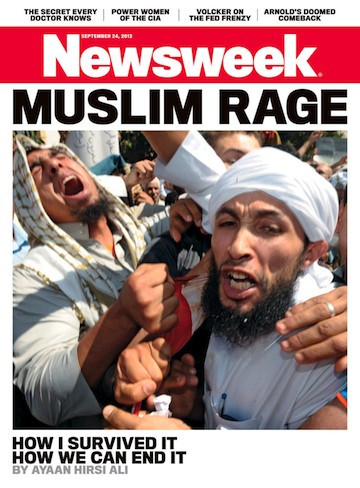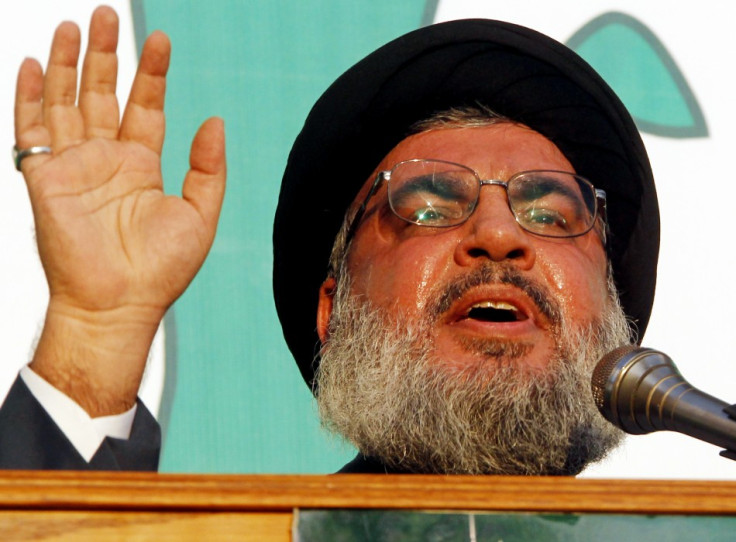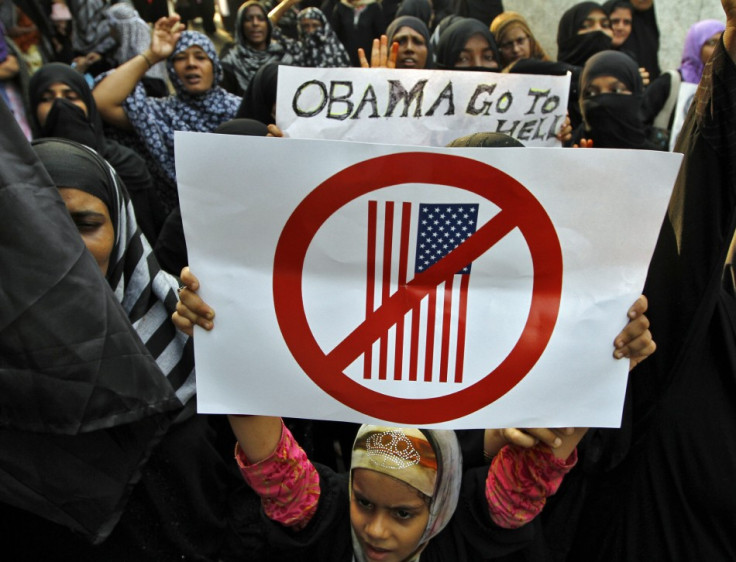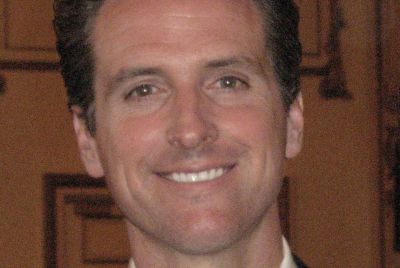Why Newsweek's Muslim Rage Cover Story Headline is Wrong [OPINION]

Sensationalism surrounding the recent spate of attacks on US overseas missions, sparked by a low-budget anti-Islam video that denigrates the Prophet Muhammad, has reached a new peak with the release of a Newsweek cover story headlined "Muslim rage".
Carrying a photo of angry, bearded Muslims, the cover story is authored by Somali-born Dutch woman Ayaan Hirsi Ali, a scholar at the ultra-conservative American Enterprise Institute (AEI). In May, Ali attempted to defend anti-Muslim mass-murder terrorist Anders Breivik by saying that the gunman "had no other choice but to use violence" because his views were "censored". She has also called for Islam to be "defeated".
In her latest article, the author recycles the mantra that extremist Muslims "are not a fringe group", instead they represent "the mainstream of contemporary Islam".
Ali's article is by no means the only figment of fantasy to emerge from the US media over recent days; in fact, it appears many US media commentators have wholly lost touch with reality regarding the assaults on American embassies. Even the American establishment, through the words of defence secretary Leon Panetta, has admitted that the level of violence appeared to be levelling off.
Instead of following the example of President Obama, who responded to the mission attacks by calmly shoring up security in endangered hotspots and dousing fires with diplomacy, many American outlets have sought to blow the attacks out of all proportion. MSNBC's Joe Scarborough even stated that the entire Muslim world hates the United States "because of their religion".
Megan Reif, assistant professor of political science at the University of Colorado Denver, has compiled a spread sheet comparing the crowds involved in the so-called Arab Spring and those which have congregated for the current protests.
The result is that the percentages involved in the anti-American incidents are much smaller than those in the Arab uprising in their respective countries. The author also noted that the deaths involved in the so-called Arab Spring were much higher.
"It is interesting to observe how media images of the crowds at Tahrir square in early 2011 were presented in wide-angle format, while the current spate of protest images are closely cropped around smaller, violent groups of people, giving the impression that the crowds are large and menacing," Reif wrote.
She added that the emphasis of the narrative presented by newscasters in the media "would have us believe that the current protests are larger and more serious than those of the Arab uprisings.
"Given that the U.S. is the target of this anger, this disproportionate emphasis is not surprising, but it discounts the fact that the vast majority of Muslims are not protesting the film, US values, or even US policy," Reif added.
Extremists on the forefront

It is still unclear how much anti-American militants have exploited the sketchily produced film called Innocence of Muslims, which depicts Muhammad as a philanderer, a fraud and a child molester, to enrage the crowds.
Ultra-conservatives, radical clerics and influential Islamists with an anti-American agenda have borrowed the hideous Arab leaders' habit of proclaiming themselves mouthpiece of the whole Muslim world.
The feared al-Qaida affiliate in Yemen, which is fighting a pitched battle with US-led forces in the country, has praised the killing of US ambassador in Libya and called for more attacks to expel American embassies from Muslim nations.
Other radical Islamists leader have promulgated the anti-American message, with the leader of the Lebanon militant Shia Hezbollah group Hassan Nasrallah even making a rare appearance at a rally against the Islamophobic film. He said the world needed to know Muslims "would not be silent in the face of this insult".
Interestingly enough, the US administration and thinktanks with close ties to Libya, such as the London-based Quilliam, were quick to stress from the very beginning that only a few peaceful protesters took part in Benghazi to mark Muslim anger against the film.
In fact the Benghazi attack at the US consulate, in which Chris Stevens, and three other embassy staff members were killed, was likely a cover for an Al-Qaida assault to avenge the death of Abu Yaya al-Libi, al-Qaida's second in command killed a few months ago.
A minority is protesting

As well as the scale of the protests, their location also needs to be qualified amid the cacophony of hysterical diatribes.
Fleshing out some of the data available, John Hudson produced an interactive map of the protests so far. It is important to notice not only that the violent protests appeared in the countries that have experienced political violence over the last year or so (Egypt, Libya, Tunisia and Yemen), but also that the three countries with the largest Muslim population in the world - Indonesia, Pakistan and India - have seen no violence and a few protests.
There are also vast areas of the Muslim world that did not protest at all. That includes sub-Saharan Africa, Central Asia, Southeast Asia, Europe, Russia, China and the US.
To quote Max Fisher, associate editor at The Atlantic, "the fact that these enormous populations -- 76 million Muslims in Nigeria, 75 million in Turkey, 29 million in Ethiopia, and so on -- across dozens of countries are not protesting shows the extent to which violent protests are the exceptions rather than the norm".
What ultra-conservative Islamism and Germany's Far-right have in common
It is also interesting to note that a group of ultra-conservatives in Egypt have also been accused of instigating violence by showing a clip of the film. The events of recent days demonstrate that extremism extends far around the world; in fact, Islam's most violent critics share much in common with its most aggressive defenders.
A far-right Islamphobic group in Germany has said it wants to screen the controversial film in the name of "freedom of expression". The Pro Deutschland Citizens' Movement, which already posted the trailer on the website, showed an unusual concern and haste with its statement to Der Spiegel magazine.
In attempting to engender racial tension by showing the film, the Movement is behaving in exactly the same way as the ultra-conservatives in Egypt. Furthermore, its irresponsible activities were a major cause the attack on the German embassy in Sudan on Friday, as foreign policy expert for the ruling Christian Democrats Ruprecht Polenz pointed out.
The Pro Deutschland film night may be more warped and sinister than the "Muslim Rage" article in Newsweek, but the two share the same fundamental cause; to restore the Good-Bad narrative created after 9/11 by Bush's War on Terror and its Axis of Evils. Perhaps the Western world has not moved forward from it yet.
© Copyright IBTimes 2025. All rights reserved.






















